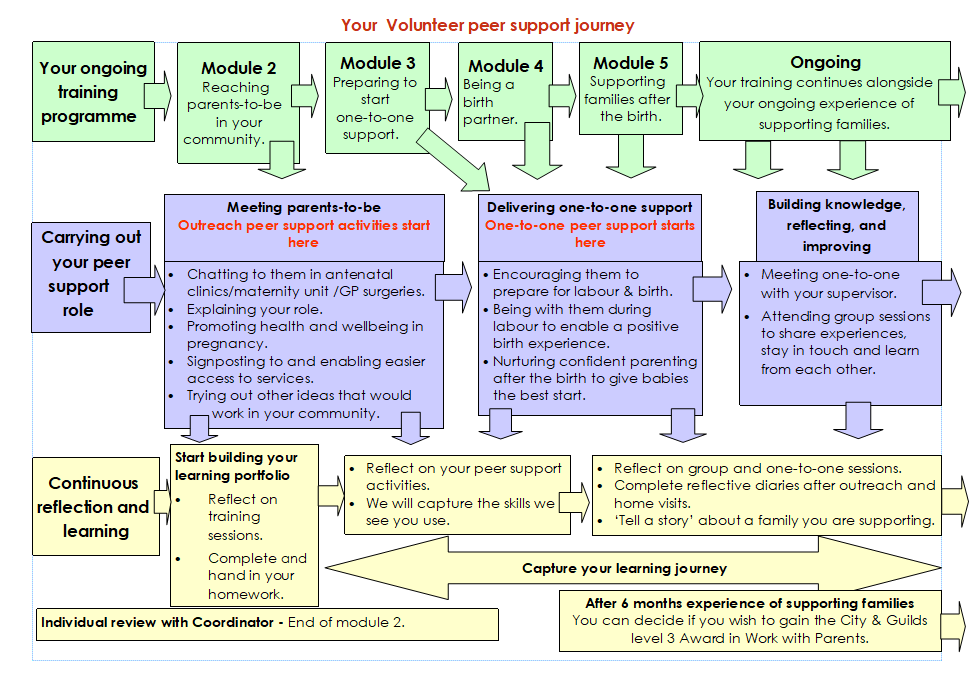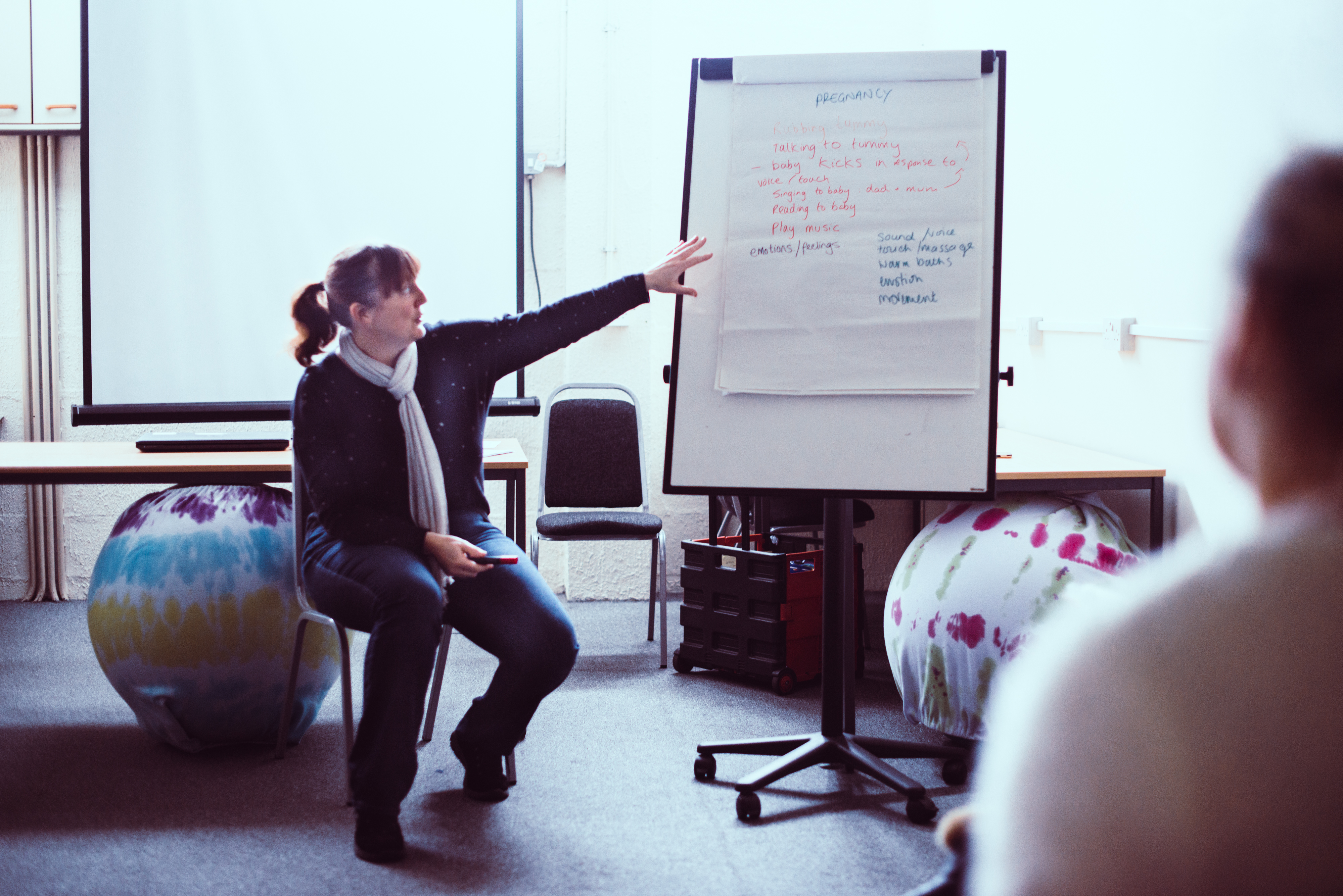In this section we share how training is delivered to Community Parent volunteers recruited to deliver one-to-one support to expectant and new parents whether virtually, at home, in hospital and in the community. (Session guides for face-to-face delivery also have remote delivery options in response to the pandemic). We are sharing four additional training modules that build on the taster course (module 1).
The aim of the training is to build on volunteers’ existing skills and personal qualities, and develop the knowledge and skills needed to become effective peer supporters.
Giving back to your volunteers
The programme is based on a reciprocal process of ‘giving’ to the community and volunteers ‘receiving’ opportunities to develop new skills, and access personal development and employment opportunities.
Delivery approach
Some volunteers may have had negative experiences of formal teaching, so it’s crucial that the trainers and facilitators are able to develop trust and rapport with them.
- The training includes individual and group activities, and lots of reflective learning
- Co-facilitating is highly recommended
- Delivery is informal, enjoyable and as part of a mutually supportive group
- A staged process is important (i.e. separate training modules delivered in tandem with specific stages of carrying out the volunteer role)
- Training is delivered flexibly either virtually or at easily accessible venues.
Volunteer reliability and commitment
Attending a lengthy training course doesn’t guarantee that a volunteer will be reliable and committed. That’s why Community Parent programmes ask volunteers to start carrying out some initial supervised volunteering activities during the early stages of their training, and why training and volunteering activities run in tandem. Because reliability and commitment are vital when giving vulnerable pregnant women one-to-one support.

Ongoing training
Ongoing training and reflective supervision are vital to ensuring quality peer support. After the first five modules, training continues on a monthly or two-monthly basis to:
- Explore new topics and learning opportunities that arise from volunteer visits
- Generate insights into local community issues
- Generate ideas about how the programme could be adapted to best suit the local community
- Enable peer-to-peer learning and a sense of a joint endeavour
- Celebrate achievement
- Explore new ways to overcome challenges
- Build each volunteer’s confidence, skills and personal development.
These include:

- Valuing and raising awareness of volunteers’ existing strengths and skills
- Building each volunteer’s confidence and self-esteem
- Creating a supportive environment in which volunteers can express their own views and learn from each other
- Enabling volunteers to identify their individual ongoing learning and development goals.
The Manual Guide: Community Parent Volunteer Training can be downloaded below.
Manual Guide: Community Parent Volunteer Training
Added 13/05/2025Please sign in to download this file.
Supporting volunteers to use their skills in practice is crucial to maintain the quality of the support they offer. This can be achieved in many ways, including:
- Observing role-play activities and giving constructive feedback (and encouraging volunteers to do the same)
- Observing active listening and interpersonal skills in the natural volunteer setting (for example, on an accompanied first home visit)
- Completing a reflective diary
- Parents and volunteers completing a questionnaire as part of a ‘Where are we now?’ process.
It’s also important that volunteers can effectively share knowledge with parents. This can be done in many ways, for example, during training, by encouraging volunteers to share resources in a non-prescriptive way as ‘one parent to another ’.
The Manual Guide: Community Parent Volunteer Training can be downloaded below.
Manual Guide: Community Parent Volunteer Training
Added 13/05/2025Please sign in to download this file.

